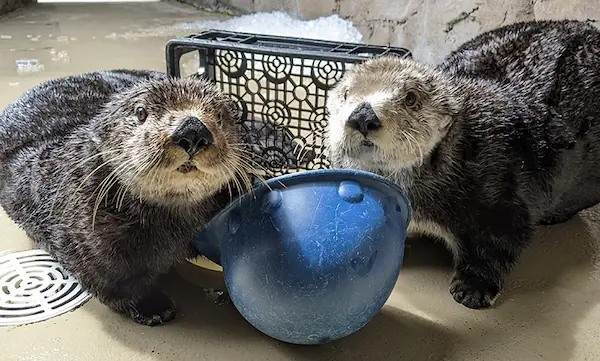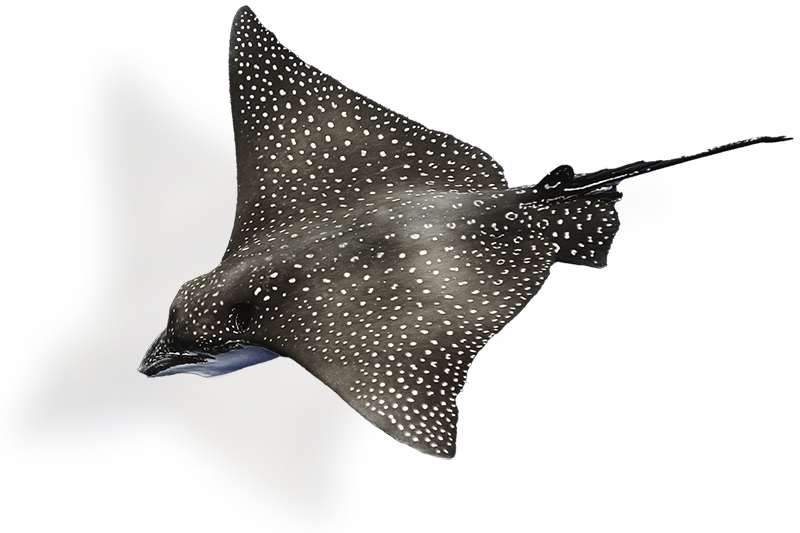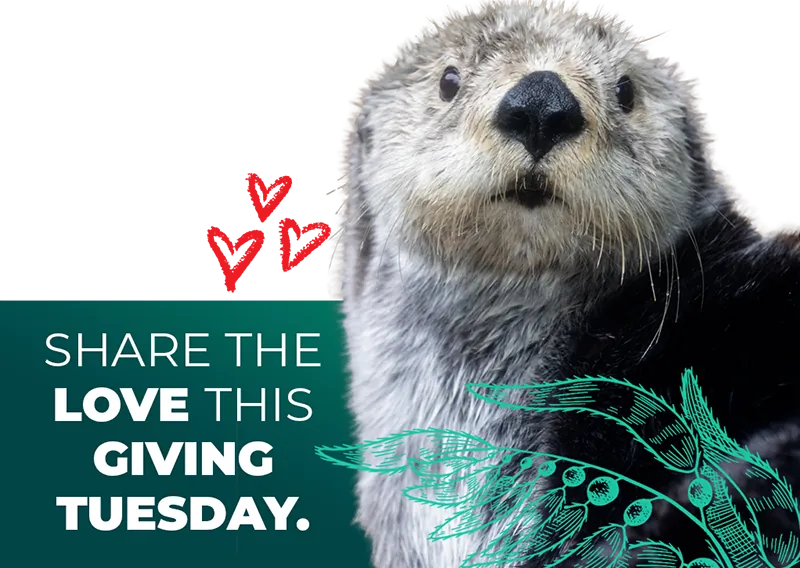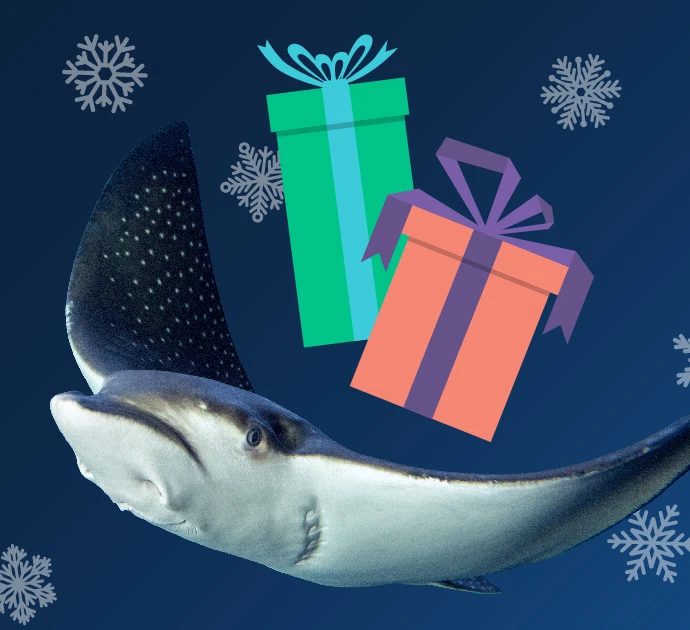In our recent web story, we highlighted a number of former Youth Ocean Advocates, or YOAs—folks who participated in our teen volunteer program and then went on to a variety of ocean-related careers. Today, we’re happy to share several more.
These are just a few examples of the many young marine enthusiasts (over 2,500 since the program launched in 1994!) who learned and grew at the Seattle Aquarium—and then, in a wonderful ripple effect, went on to make a difference for the marine environment in their jobs and communities. We hope you enjoy reading their stories.
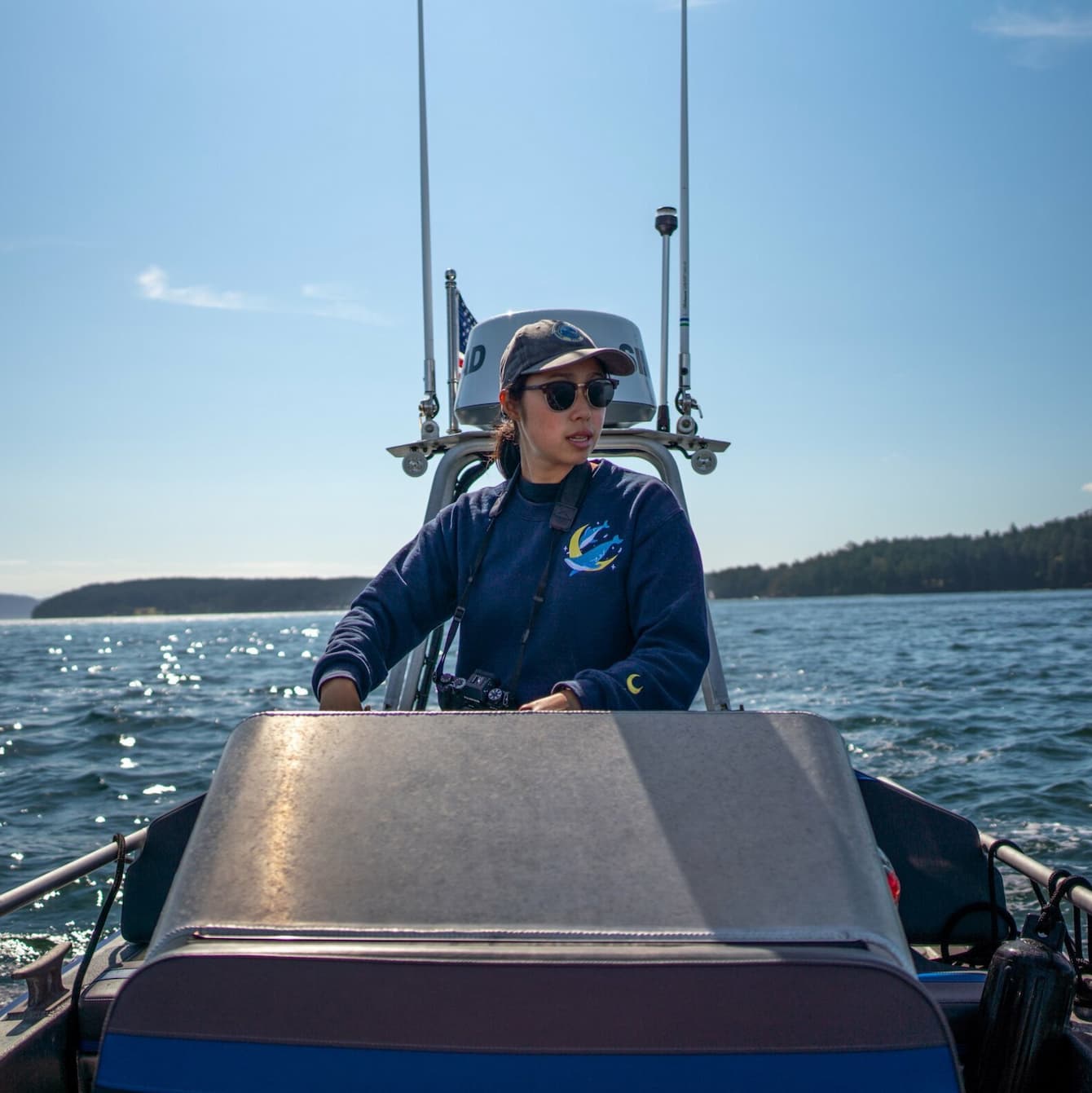
“The Seattle Aquarium shaped my journey and helped me see the tremendous impact of science education in informal settings.”
—Bethany Shimasaki, YOA 2012–2015
Imagine spending your days on the water, helping people discover the wonders of the ocean and the animals that live there. That’s what Bethany does: She works in ecotourism in Washington and Hawai‘i, specifically for small businesses that follow whale-watching guidelines. She shares knowledge with tour guests and, by taking photos of the whales she sees, she’s able to contribute data to researchers.
“I’ve been inspired by humpback whales since I was little,” she says. “I grew up in the San Juan Islands and spent a lot of my childhood on a boat.” Her curiosity and love for humpbacks only grew with time; in high school, she worked as a deckhand for a local whale-watching tour.
“Attending a career fair at the Seattle Aquarium helped me realize that people can do this for a living,” she comments. “I was shy and didn’t see my potential, but becoming a YOA helped me realize that I could talk to people.” She continues, “Education is key to changing policy. And if I can give people a connection to humpbacks, they’ll start caring and acting to protect them.”
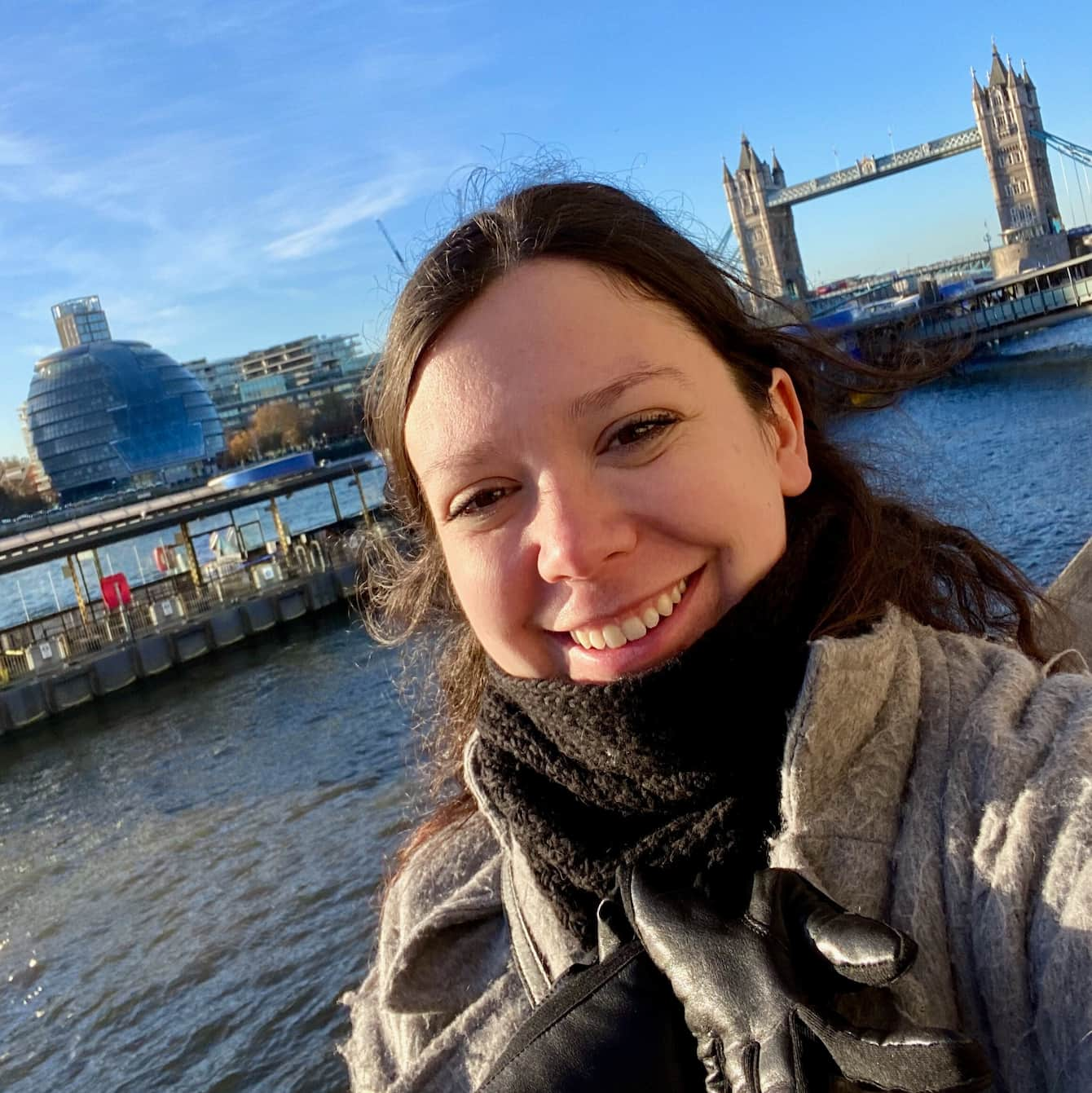
“It defined my high school years and gave me a community that I’ll forever belong to. I became a part of the Seattle Aquarium and never left.”
—Trinity Conn, YOA 2012–2015
The first time Trinity walked through the Aquarium’s Pacific Coral Reef habitat, she was captivated. “The corals blew my mind,” she says. “They looked so weird that I just had to know more.” By then, Trinity already knew she wanted to be a scientist. “I loved animals, marine life, the ocean and being outdoors right from the start,” she comments.
Trinity joined the YOA program in high school because she wanted to learn more about careers in marine conservation and see how she felt working in that world. Her years of volunteer service only fueled her interest in coral. “It felt like an unexplored world with so much to learn,” she explains.
That curiosity is still driving her. Trinity recently earned her Ph.D. from Penn State University, where she studied coral genomics and conservation. She is now continuing that work as a postdoctoral research fellow at the Shedd Aquarium.
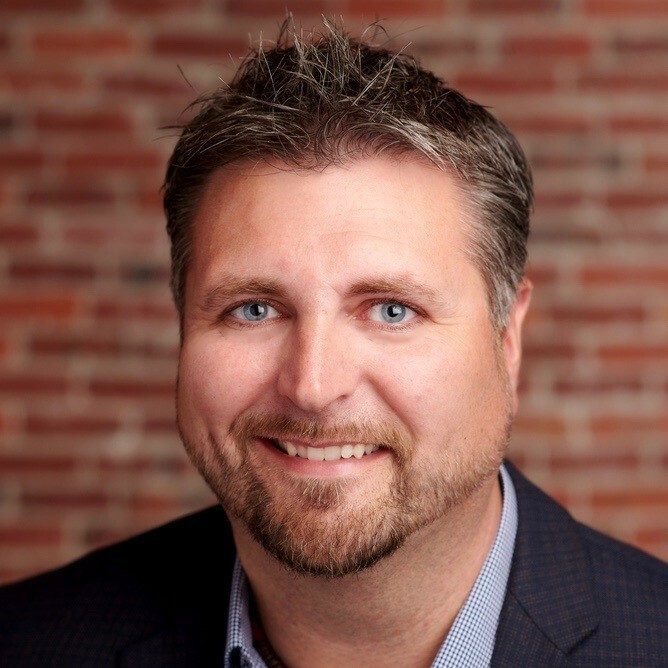
“Being a YOA was the spark that ignited my lifelong passion for conservation and driving larger social change—it provided a platform for me to learn, grow and hone my advocacy skills.”
—Derek Baker, YOA 1995–1997
Sometimes former YOAs make their way back to the Aquarium—like Derek Baker, our senior director of strategic initiatives and government affairs. After graduating from Western Washington University with a double major in political science and communication, he held numerous roles in government and the private sector related to public policy, community organizing and communications. When the opportunity arose to join our staff in 2018, he jumped at it.
“I’ve always had a passion for our marine environment and effecting change,” he notes. “I was excited to take the skills I learned around public policy, community organizing and the power of connecting with people through storytelling, and apply them to ocean conservation at the Aquarium.”
Derek continues, “The challenges facing our ocean and planet can appear daunting, but educating and bringing government stakeholders to the table can make large-scale change possible for our communities. Just like our ocean, government and its policies touch us all—and bringing policymakers to the table will ultimately lead to a healthier future for everyone.”
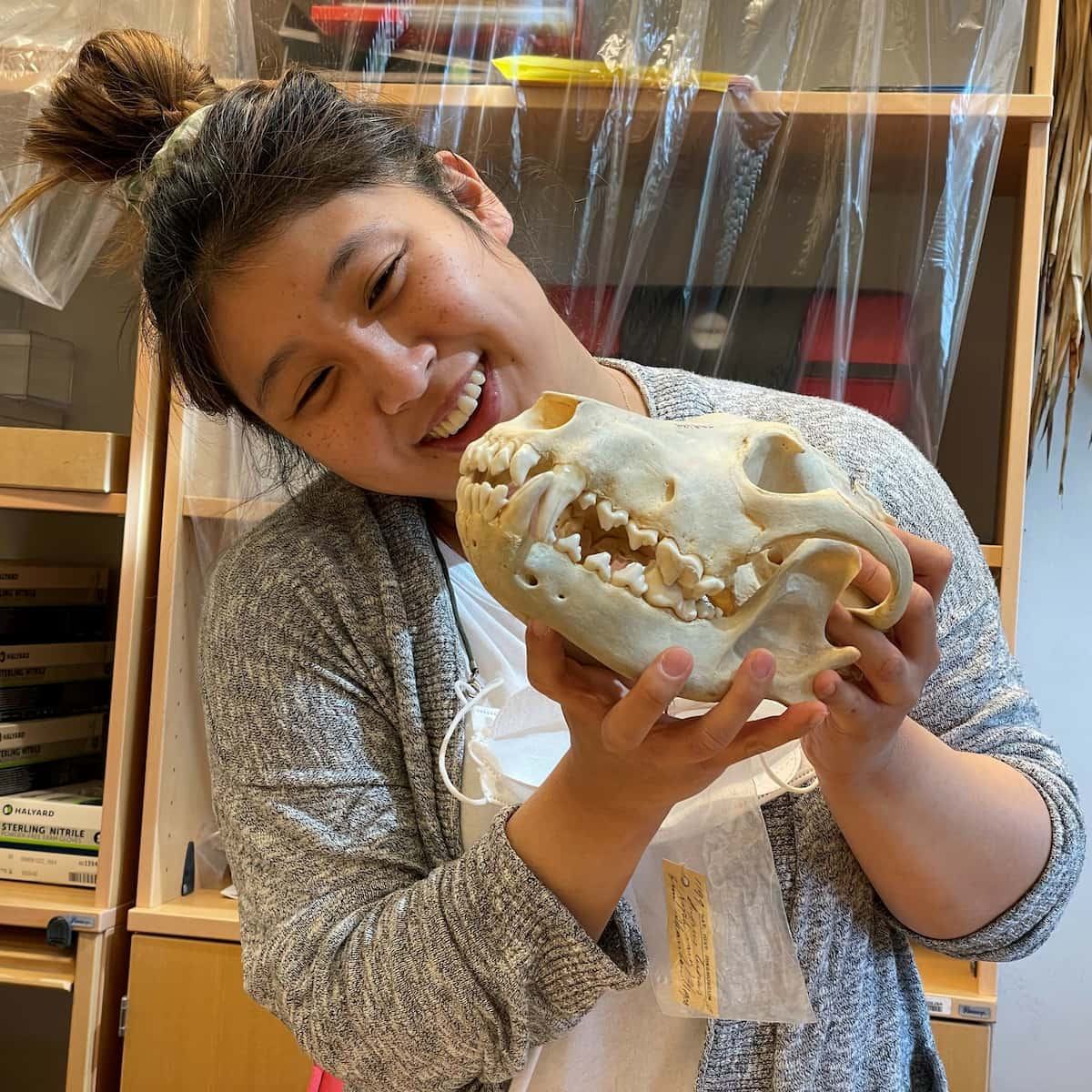
“Meeting and working with Seattle Aquarium staff members made me realize I could make my love of the ocean my job.”
—Hyejoo Ro, YOA 2012–2015
Hyejoo grew up in the Pacific Northwest where, she says, “I was always interested in the marine environment, always outside and surrounded by nature—which really helped foster my empathy for animals.” Field trips to the Aquarium, the University of Washington and various labs opened her eyes to the idea that her love of animals and nature could become more than just a hobby.
Hyejoo brought her love for the ocean to college, where she’s currently in graduate school at the University of California–Merced. Her research is focused on understanding the dietary patterns of predators with stable isotopes, which are a tool that traces and reflects diet and habitat. She’s studied how shark or grey wolf diets differ according to different life history traits, like age and sex or where they live. Her work is centered on whether these predators are considered to be keystone species and their impact on other populations.
She’s not stopping there. In the future, Hyejoo would like to continue her research with stable isotopes because, she says, “They are a tool that can shed light on complex ecological interactions between species in any system—marine, terrestrial, estuaries, rivers, lakes and more.”
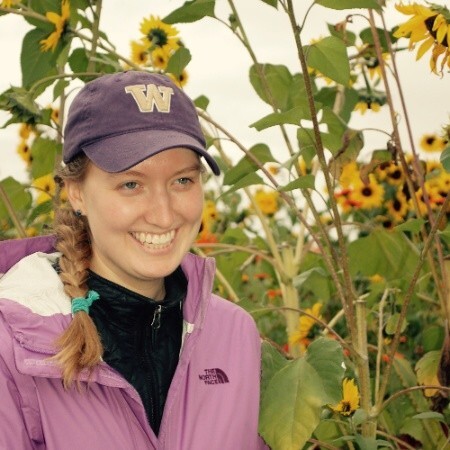
“My time at the Aquarium helped me break out of my shell. I was super shy and it helped me grow.”
—Liz Allyn, YOA 2014–2015
As a marine mammal technician for Makah Fisheries, Liz has found a sweet spot in the space where policy and research meet. She’s focused on evaluating strategies to restore local salmon, including studying seal and sea lion populations in Puget Sound. In what she describes as “a little of everything,” her role involves both fieldwork and data analysis.
“My childhood was centered around the ocean,” Liz says. She spent weekends on the beach at Golden Gardens and visited the coasts of Oregon and Maine. “I wanted to be either a marine biologist or a human rights lawyer—and, as it’s turned out, my career is kind of an intersection of those things,” she explains.
Participating in what was then called our Citizen Science program through her high school marine biology class in 2012, Liz researched sea stars. “That’s when it hit me: people do this for work,” she says. She soon joined the YOA program, one of the many steps that helped lead her to where she is today. Going forward, she aims to finish her Master of Science in fisheries at the University of Washington and continue working at the intersection of marine ecology and treaty resource management.
Be part of the next generation of Youth Ocean Advocates
With the opening of the Ocean Pavilion this year, the YOA program’s capacity will grow even further. Offering school-year and summer sessions, it’s open to young people enrolled in grades 9–12 in a high school, Running Start, GED or homeschool program at the time of application. Interested in becoming a YOA—or know someone who might be? You’ll find details on our Youth Ocean Advocates webpage.
